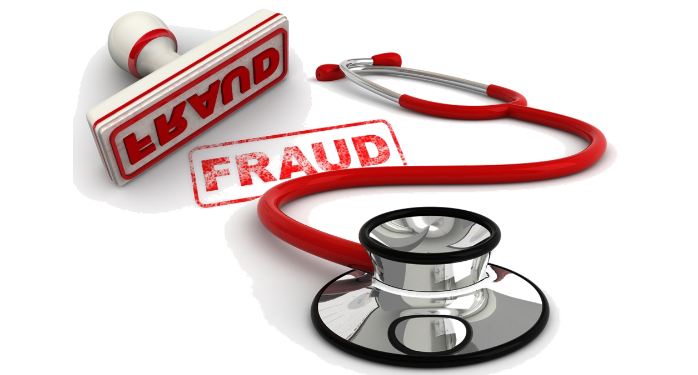Elena Donina Glukhman, Project Manager of AP Companies Global Solutions, questions what fraud in healthcare means and how it can relate to the maritime industry, explaining common types of fraud committed by the patients and their consequences.
According to National Health Care Anti-Fraud Association, fraud is false or misleading information, provided to a health insurance company or the employer in an attempt to have them pay unauthorized benefits to the insured/employee‚ another party‚ or the entity providing services.
The offense can be committed by the patient or the provider of health services.
The most common types of fraud committed by the medical facilities might be:
- billing for services and procedures that never happened
- making unnecessary treatments for the purpose of financial gain
- falsifying patient’s diagnosis to justify tests‚ surgeries‚ or other medically unnecessary procedures
- billing each step of a single procedure as if it were a separate procedure- so called “de-bundling of services”
- outsourcing medical services to other providers and billing them as if they were rendered in the facility.
The most common types of fraud committed by the patients have been noticed as :
False claims. Trying to get reimbursements for the treatment that has never happened
PEME fraud (especially important in Maritime industry) when the potential employee brings samples of a different person for urine tests, knowing that he has some medical condition, that would prevent him from getting the PEME certificate.
Whether the ship owner has an insurance coverage for the health care cases, self-insured, or just uses a basic P&I cover, health care fraud leads to higher premiums, increases the cost of providing health care benefits to employees, providing wellbeing to the crew and in turn increases the whole cost of doing business and maintaining the right balance between expenses and earnings. In addition to that on some instances it may lead to poor medical treatment of the seafarer and as a result threat to his health condition and at worst scenario- to his life.
The statistics on fraud cases in health care is very impressive and rather scary. According to Global health care anti-fraud network there is an estimate that $260 billion (180 billion euros)—or approximately 6 percent of global health care spending—is lost to fraud each year. This amount is equivalent to the GDP of a country like Finland being stolen on an annual basis.
Fraud prevention and fraud control is a very complicated process. For the moment, the biggest players of health insurance market have already created a number of different international associations, where they share their practices, new ideas and tactics. Nevertheless, for the moment, there is no unique, 100% valid and efficient approach to fraud prevention and control. More over fraud prevention and control is a very dynamic substance, it has to be revised on a regular basis, updated, changed, double-checked, tested and finally consistently implemented. There is no way that one unique formula for cost control can be created once and would remain relevant and effective for many years to come.
In AP Companies, we have a special Medical Fraud Investigation Team, that looks at suspicious high cost claims and continuously working on cost containment approaches and tactics. We have developed a multi step process to make sure our clients only pay for relevant services that have effectively been rendered to the patient, making sure the price level is always reasonable, and is not inflated because of the fact that the patient is a maritime employee.
When we receive a claim, and upload it to our system, the system checks:
- Medical provider: The majority of the medical facilities that we use, are listed in our system, with the relevant services and agreed discounted rates. If the provider is unknown to us we need to perform a complete check: Address, the specialists that are offered, the services the facility provides. We need to make sure this provider exists and provides services that are licensed by relevant local health authorities
- The invoice. The system checks if all the services listed in the invoice coded according to CPT4 coding correspond to stated diagnosis in ICD10. If any service is not within the normal procedures for this diagnosis, this invoice is red flagged and referred to cost containment team for further investigation
- The rates. If the invoice comes from a contracted provider, the system compares the agreed rates to the invoiced rates and also if the discounts are applied. If the invoice did not come from a contracted provider, our team checks if the prices in the invoice are reasonable for this area and comparable to other provider of the same level in the same region. If the prices are higher, that means there is a space for improvement and negotiation – this is being addressed with a provider.
These are the minimum steps and if the claim is suspicious and this initial test or part of it failed, the claim passes to Medical Fraud Investigation team.
Not long ago, a crew member from Peru, sent us the bill for reimbursement of medical expenses. He has gone through back surgery due to his 2 hernias in the lower back. The hospital fees and the doctor’s fee, all together, came up to a total amount of 18 500 USD.
AP Companies operators always check the bills, but this bill in particular, seemed weird: It was very basic, there was no details on the performed surgery. Besides, it was difficult to understand why a crew member would want to go through such an expensive treatment on a self pay basis and not ask his employer to made payment arrangements in advance on his behalf with the medical facility.
This case was immediately passed to Medical Fraud Investigations team.
AP Companies fraud investigation department started their mission: they called the numbers on the bill, the person on the other side of the line answered “Hello” which did not seem very typical for a hospital main phone line. They rejected to pass the call to billing department and dropped the call.
The registration number of the clinic did coincide with a very large important clinic in Lima, but the name of the clinic did not coincide with the one on the bill.
The name of the clinic did not appear in any medical network of the local insurance companies, and did not have any exposure in Google.
The address of the clinic was just an empty square in Google Map.
The surgeon did not appear in the list of registered surgeons of Lima.
AP Companies medical fraud investigation team requested a budget from several hospitals in Lima, and the same surgery in the most expensive medical facility in Lima, would have cost 12000 USD.
After all this investigation, it was absolutely clear, the clinic that issued the bill never existed. It was a clear case of fraud committed by a crew member in this case.
The medical fraud is very common in Medical insurance business and each and every company has developed its own practices to control fraud. “For the ship owners this issue is more complicated, as the ship owner does not deal with medical cases every day and therefore can hardly defend himself from such additional, normally very high, but unnecessary expenses, therefore, the best way to deal with Medical Fraud, prevent and control it, is to delegate this part of Crew Member Care to the relevant professionals – healthcare insurers, cost containment companies or Third Party Administrators.” Natalya Butakova, Business Development Director of AP Companies, specialized on Crew Member’s Healthcare, says.
The views presented hereabove are only those of the author and not necessarily those of SAFETY4SEA and are for information sharing and discussion purposes only.
About Elena Donina Glukhman, Project Manager, Development & Cooperation Worldwide
 Elena Donina Glukhman is Project Manager of AP Companies Global Solutions, the international leading health care management, cost containment, and emergency medical assistance company. AP Companies has the largest direct medical provider network in 185 countries. AP’s Cost Containment team consistently achieves significant savings worldwide in all kind of different medical facilities. Elena has been working in the field of International Medicine since 2009 having previously worked in Bupa Global, dealing with insurance market development for expats and crew members and has a wide experience of cooperation in terms of medical care for the crew members with global cruise line companies and Marine Insurance companies.
Elena Donina Glukhman is Project Manager of AP Companies Global Solutions, the international leading health care management, cost containment, and emergency medical assistance company. AP Companies has the largest direct medical provider network in 185 countries. AP’s Cost Containment team consistently achieves significant savings worldwide in all kind of different medical facilities. Elena has been working in the field of International Medicine since 2009 having previously worked in Bupa Global, dealing with insurance market development for expats and crew members and has a wide experience of cooperation in terms of medical care for the crew members with global cruise line companies and Marine Insurance companies.































































